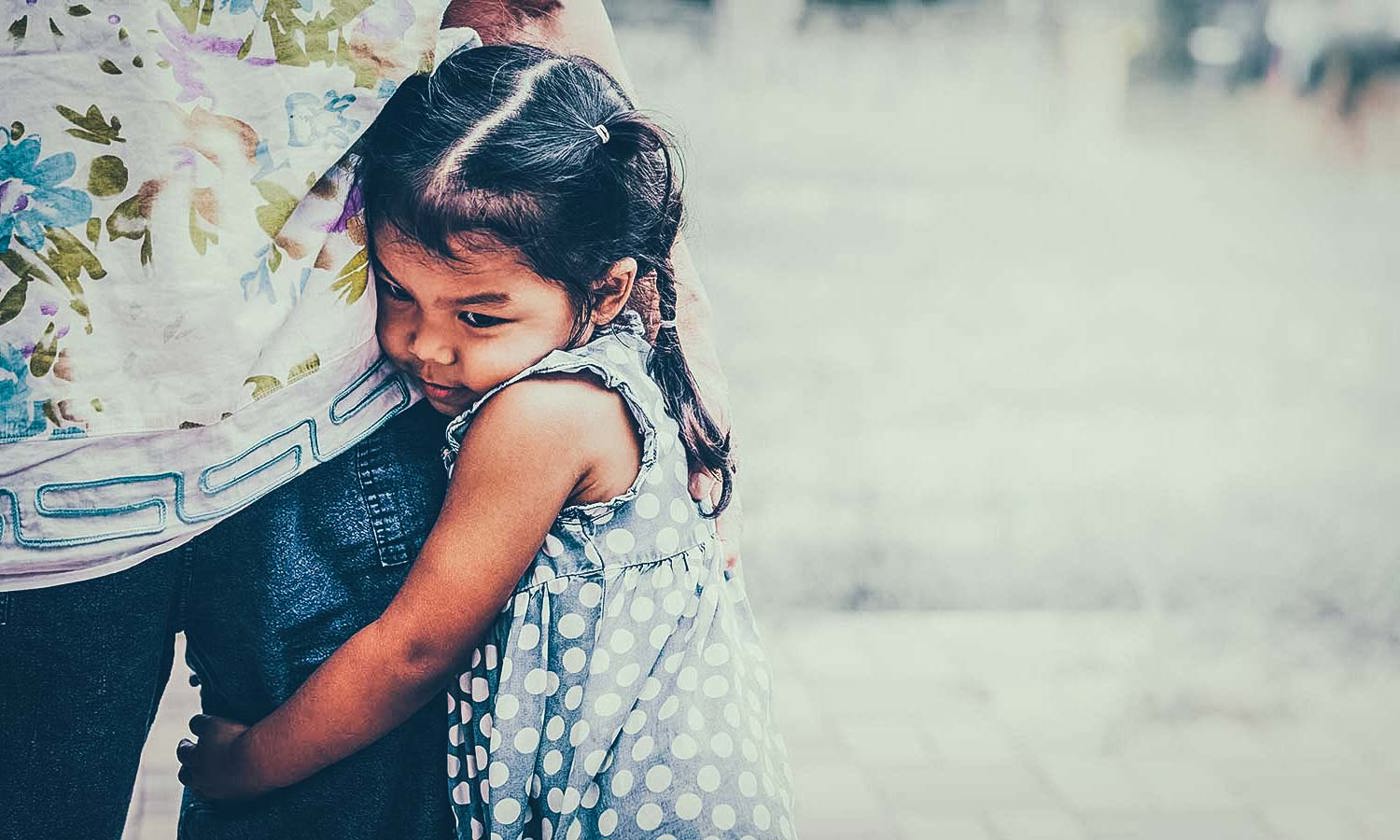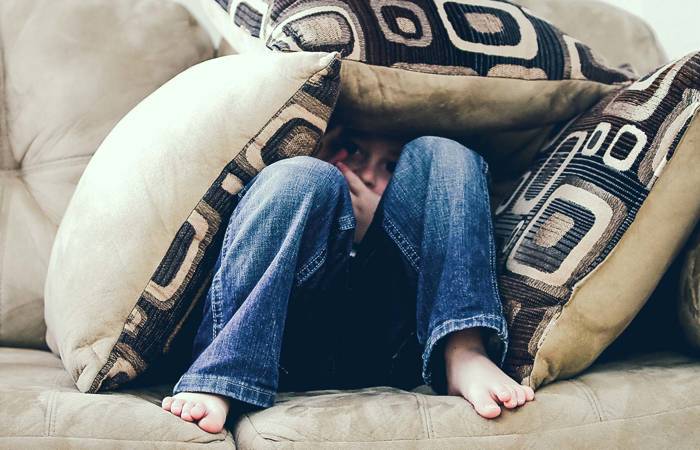Like what you see?
Sign up to receive more free parenting advice.
Thank you for subscribing to our newsletter!
Child Development

Credit: iStock.com/Sasiistock
Do you have a child who can be shy or anxious? Here’s some good news. Socially anxious children can be very self-conscious and worry excessively, but research suggests parents have the power to make a difference.
“This means that parents can help create change,” says Postdoctoral Research Fellow Dr Talia Carl from the Centre for Emotional Health, Macquarie University.
Dr Carl says parents can teach shy or socially anxious children to think more realistically about what others might think of them. For example a child may think ‘everyone is staring at me’, but can be challenged by asking them to look around and count how many people are actually looking at them.
Dr Carl says parents should also challenge or encourage children to gently and gradually face their fears.
“For instance, parents can arrange play dates for their children or help their children join in a group extracurricular activity; and parents can also talk to their children about friendships and gently and sympathetically encourage their children to first talk to one safe and familiar person, and then two the next day, three the following day, and so on and so forth.
“Parents can also help their children by brainstorming constructive ideas or solutions in relation to social situations, such as with current friendships in order to help their children maintain the friendships and by encouraging their children to develop more friendships.”
Around one child in every typical Australian classroom will meet criteria for social anxiety disorder, while up to a dozen will be shy.Dr Talia Carl
Dr Carl says studies show that while parents help their children overcome social anxiety, the use of certain practices such as excessive control, can have a negative impact on their children’s social anxiety.
In a 2008 pilot study by Alice de Wilde and Macquarie University’s Distinguished Professor Ronald Rapee about controlling maternal behaviour and its impact on anxiety in children1, children aged 7 to 13 years were asked to prepare a two minute speech.
For half of these children, mothers were asked to be overly controlling by helping their child extensively with their speech preparation and more or less take over the task. For the other half, mothers were told to be minimally controlling, and only gently guide and encourage their child on the task.
Children were subsequently asked to prepare a second speech by themselves and then deliver it to a small audience.
The results showed that children whose mothers had previously been overly controlling and had taken over the speech-writing the first time, showed greater anxiety when they presented the second speech.
Dr Carl says this study highlights that parenting behaviours, particularly the degree of control, may have a significant impact on a child’s anxiety as more control may lead to more anxiety in these situations.
Dr Carl says shyness is a personality trait which exists across a continuum from very low to very high in all people.
When shyness becomes very extreme and starts to impair a person’s daily functioning, it can be diagnosed using the clinical term, ‘social anxiety disorder’.
Social anxiety is the fear of being judged or evaluated negatively by other people and the excessive worry about what other people think. Those with social anxiety usually experience distress in social situations, and often times their daily functioning is disrupted due to their avoidance of these social situations.
“Around one child in every typical Australian classroom will meet criteria for social anxiety disorder, while up to a dozen will be shy,” Dr Carl says.
“Shy behaviour is normal at any age. Some children are slow to warm up to other people, but can and do warm to a person after a period of time.
“Shyness, however, becomes a problem when it starts to affect a young person’s life and is persistent across time and circumstances. Shyness with other children, rather than adults, particularly those who are familiar to them and their own age, can be particularly problematic.
“In terms of development, the negative impact of extreme shyness is usually not too large during preschool years, but starts to increase gradually across the childhood years.”
Knowing when to intervene can be difficult for parents, but Dr Carl suggests parents should be concerned when their child’s extreme shyness is interfering with their daily functioning and routine; with the family’s daily activities; if their child plays alone when in groups of children of a similar age; or their child constantly complains of being lonely.
“It is important for parents to recognise that every child experiences the feeling of shyness or anxiety in certain circumstances. However, parents should never force their child to do things they find frightening,” she says.
“Instead, parents should seek further information on social anxiety and organise an appointment at their GP or another mental health care professional.
“There are a number of evidence-based programs and services that can effectively help reduce children’s social anxiety.
“Ultimately, good treatment does involve having young people face the situations or the fear.
“Importantly though, parents and children should work together so that the parent can encourage, gently guide and support their child to face their feared situation. Children should not be forced against their will.”
Shyness, however, becomes a problem when it starts to affect a young person’s life and is persistent across time and circumstances. Shyness with other children, rather than adults, particularly those who are familiar to them and their own age, can be particularly problematic.Dr Talia Carl
Stay up to date with the latest news and articles from First Five Years
Thank you for subscribing to our newsletter!
Should parents seek professional help their child will be assessed by the professional to determine which treatment will best suit their child’s needs.
The psychologist should do a thorough assessment of anxiety and then subsequently outline to families what specific worries/fears or other difficulties their child is facing based on the assessment.
Dr Carl says a treatment program, like the Cool Kids Program, an evidence-based program used at the Centre for Emotional Health clinic for almost three decades, may be suggested for children aged 7 to 17 years with a clinical anxiety disorder such as social anxiety disorder.
This cognitive behavioural approach teaches anxiety management strategies to both the parent and child, including thinking more realistically, as well as therapist-led gradual exposure to the situation their child finds anxiety provoking.
Dr Carl says the therapist will work through set content using workbooks, provided to both the parent and child, one-on-one in each of the 10 sessions and practice at home activities will be given to the family to help consolidate the skills they learn in treatment.
For children aged three to six years, the Cool Little Kids Program will often be parent-led, with the parent attending treatment sessions and then working through a child workbook at home with their child.
These programs are run online and in person through the Centre for Emotional Health Clinic.
In addition to the Cool Kids Program and Cool Little Kids Program, the clinic is also currently running a research treatment program which uses the Cool Kids Program to target and treat social anxiety disorder specifically in children and adolescents.
The Cool Kids Program has been the subject of a number of recent studies. One such study showed that after 12 months, 68% of children were completely free from their presenting anxiety.
If your child is showing symptoms of anxiety (such as social anxiety), contact your GP for further information on treatment options or visit the Centre for Emotional Health Clinic website to learn more.
[1] Do controlling maternal behaviours increase state anxiety in children's responses to a social threat? A pilot study. de Wilde A1, Rapee RM.







